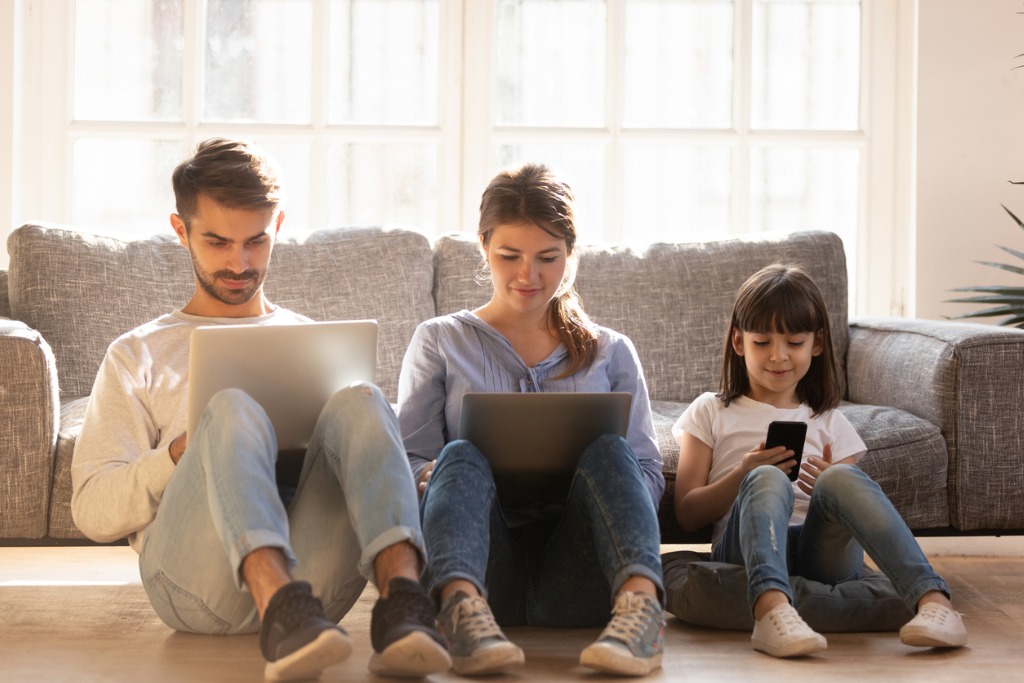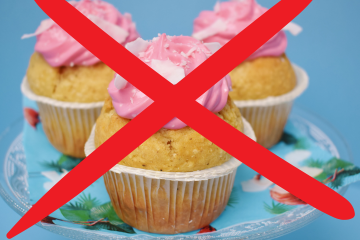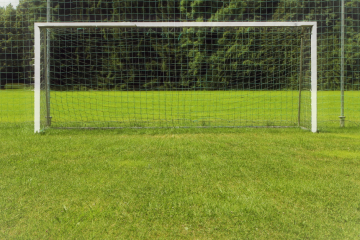How families can navigate the new online norm

First published on Linked In on 23 March, 2020
In a matter of two short weeks our lives have taken a drastic change. Schools, workplaces, pubs, restaurants and shops have closed. Hotels are no longer open. Airlines are no longer flying. Keeping a physical distance is the new norm. At the same time we have become totally and wholeheartedly dependent on the internet for work, education and to stay in touch with loved ones.
Physical distancing is not social distancing. We still need to connect.
We need to keep our distance, physically. There is absolutely no doubt about that, and it is the only responsible thing to do to help “flatten the curve”. And so, we are looking for new ways to work, connect, share, learn and have experiences. For this we have turned online. Now we host “virtual” family gatherings on House Party, participate in business meetings online via zoom, negotiate contracts via skype, and teach our children in lessons delivered via one note. Our dependence on the digital network to connect us is more important now than ever.
Our new online lives
I am constantly fighting an urge to pick up my phone and check for updates.
My social media feeds are on overdrive.
And, I have a “drink with friends” via apps I had not even heard of a month ago.
How could we celebrate Mother’s Day yesterday if it weren’t for FaceTime? And, in a world where home schooling and businesses life now co-exist side by side, parents and children and fighting over the best laptop in the house so they all can continue to work, and to make connections.
Figures from Ofcom in 2019 stated that adults were spending 3 hours and 15 minutes online each day and for children the figures were over two hours. The numbers for all were increasing. I think it’s safe to say we will see that number increase this year. Being online is the new norm for families up and down the land. But, what happens when the crisis is over? Will we return to old online habits?
It’s vital in this period of anxiety that we stay connected with each other. If we need the digital world to keep businesses afloat, then, of course, we will embrace that. If we can’t organise play dates or go for a drink with our friends then online is the only way to keep our social networks alive. It’s important, too, for our mental well-being, since we can’t go the gym or join our usual yoga class in person.
Yes, there are positives in this new norm. This morning, I, along with 800,000 other households joined the self-proclaimed “PE teacher for the nation”, Joe Wicks, on his YouTube channel, for a 30 minute free kids work out (my own kids were nowhere to be seen!). And, in our lane, a friendly neighbour set up a WhatsApp group last year, now all our chats focus on how we can get supplies for our elderly neighbours. This did not happen just two weeks ago. It is a sign of the changes we face, but also how we’re using our mobile phones for good.
Is it all too much?
Maybe.
Is there anyone else out there who feels overwhelmed at the amount of “good advice” coming your way? How much of it is “fake news”? From posts that say gurgling will kill the virus (not true, by the way) to all the well-meaning advice on home-schooling. I am drowning in it all. It’s a positive sign that so many are wanting to play a part and help others, but really, I just don’t know where to start. Navigating the school portal is difficult enough.
Are we too quick to forget the downside?
In August 2019, a report in The Guardian highlighted our already out of control online habits. Did you know that on average we pick up our phones 58 times a day? And that these tech addictions can lead to increased anxiety and feelings of hopelessness.
That very same Ofcom report I previously mentioned also highlighted the downside to our online lives. 8 out of 20 adults had concerns about some aspects of internet use (examples being hacking, data privacy and difficulties interacting with other people / content). Parents were overwhelmingly concerned about harms to their children on the internet: Online bullying and abusive behaviour, exposure to explicit content such as pornography, violence or content promoting self-harm were all cited.
Last year we praised Jesy Nelson for speaking out about her experiences of online trolls and cyber-bullying, and earlier in 2020 it felt like we had hit a new low with the death of Caroline Flack. As we rush towards the social media sites, new apps, and online networks to help us through these next few months, it is important to not forget the risks. The very same risks that seemed to dominate newspaper headlines just last year.
Responsible businesses are playing their part
I’m heartened to see businesses adapting to help make our lives easier in this period of uncertainly and in challenging times.
Audible have said they will make hundreds of titles free during school closures and twinkl are offering a month’s worth of free resources to help with home schooling. Meanwhile scholastic have created an online hub to help parents keep the wheels of education turning as best they can.
Zoom,who have waved the maximum time limit on their video conferencing calls, have also updated their website to provide advice on remote working, educating, hosting virtual events and “telehealth”.
As we embrace even more online lives, it’s important to remain calm and objective and not to forget what we already know – remember the risks associated with the digital world and take steps to keep your family safe online.
There is help when you need
The NSPCC present a bleak picture of the number of children and young people suffering online harms, telling us that as many as 200,000 young people may have been groomed on social networks, but they also offer practical advice for parents and young people on sexting, grooming, and elicit content.
Childline offers advice to young people worried about the impact of Corona virus.
O2 and NSPCC’s NetAware site helps parents to navigate the games, apps and social media sites our children are increasingly using. It includes advice on parental controls and on specific sites such as TikTok.
I’ve been impressed, too, by Vodafone’s digital parenting advice, and their tips brought to you in collaboration with Digital Awareness UK. It includes good advice on how to control your content, for example.
The Anti-bullying Alliance provides a wealth of tools for young people who are being bullied and for their parents. It includes advice on cyber bullying and how to get help.
YoungMinds also provide practical tips to help us have a more positive relationship with technology, as well as this useful guide on how to talk to your child about corona virus
What’s your view? How are you and your family navigating this new norm?


